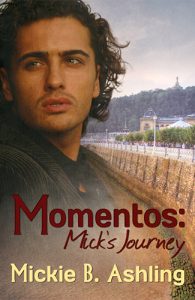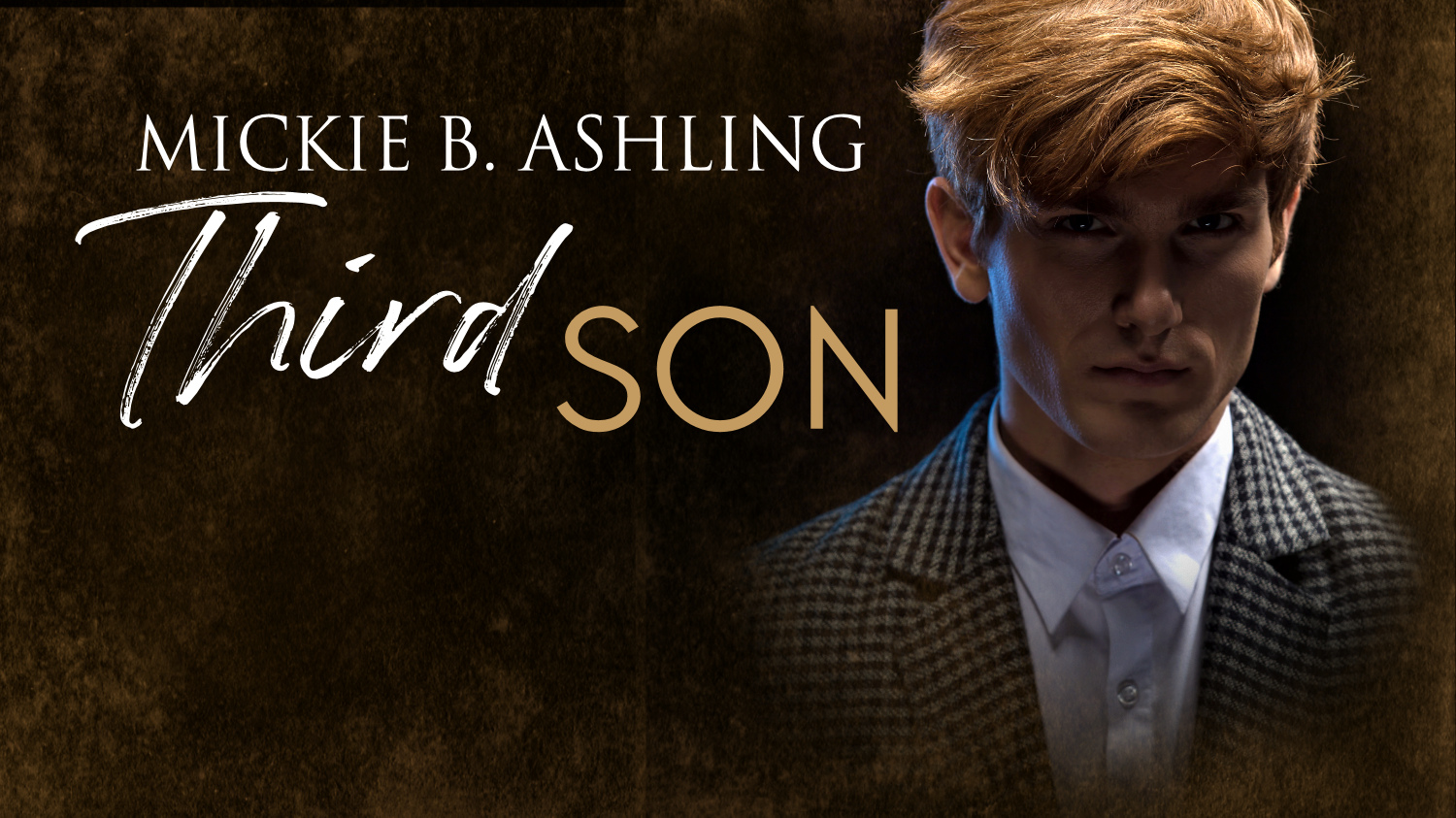 Basque Trilogy: Book Three
Basque Trilogy: Book Three
Before Mick Henley brought Paul Alcott and Tono Garat together in Loving Edits, it was simply Mick and Paul, two optimistic teenagers who began a love affair that would span twelve years—and leave an indelible mark on their lives.
The passionate young lovers shared a series of firsts before Paul’s harsh father drove a wedge between them, shattering their dreams and destroying everything Mick believed to be true about love. After Paul’s defection, Mick met Tono, a closeted Spanish athlete, who helped heal his broken heart.
From passionate highs to heartbreaking lows, Mick inspires the two most important men in his life and brings them together with his impending death. They’ll learn that all their memories, even the most difficult to bear, are precious and that love is the most amazing journey of all.
Cover Artist: Reese Dante
Prologue
San Francisco, California, 1978
THE pungent aroma of curry had saturated the air of the warm and crowded apartment, doing a fine job of masking the distinct odor of blood. Dad’s white shirt was spotted with blobs of dark red, desiccated evidence of the crime scene that had occurred only one hour ago. Mom and Auntie Mira sat on either side of him, clutching his hands in fear.
It was a Friday night, the start of the weekend, and Dad and his partner, Ashok, had decided to celebrate with a six-pack of Budweiser. They’d removed their Kevlar vests before leaving the station and had walked into a liquor store during a robbery in progress. The perp had fired indiscriminately, and Uncle Ash had died in my father’s arms. It was a case of being in the wrong place at the very worst time, he explained to Auntie Mira, who received the news with the stoic resignation inherent in being a policeman’s wife. She pointed out, in her melodious Indian accent, that it was all a part of Uncle Ash’s karma, a word I’d never heard before. It seemed to bring her a small measure of comfort despite the tears that ran down her face in rivulets. I was eight years old when I sat on the opposite sofa with Naveen, trying to comprehend what had just happened.
It was 1978 and approximately ten years past the flower power era. Dad and Ashok Patel had been roommates in college and had become best friends. They’d demonstrated against the Vietnam War and had been active in the entire hippie culture, which involved sex, drugs, and music, usually at once. My mother, Zoe, had entered the mix when the two friends had stumbled into her tattoo parlor on some acid-induced high and had talked the pretty brunette with the Elizabeth Taylor eyes into working on their psychedelic designs for a reduced price. By the time she was done with Dad’s tattoo, he was already halfway in love with her.
The friendship between the three had outlasted the shop, and that entire sub-culture, and when the men had signed up to join the San Francisco Police Academy, they’d surprised their old anti-establishment friends but slipped into the role of law enforcement quite easily. The only residue of their hippie days was the occasional toke they’d share after work. Auntie Mira had come into the fold after being flown in from Mumbai for the prearranged marriage, and despite the odds, she and Uncle Ash had fallen in love. The four of them became inseparable. They did everything together, and when Mom got pregnant with me, Auntie Mira followed suit. Naveen and I were born about four months apart. We were raised like brothers, sharing toys, food, and parents. I was as comfortable shoveling daal down my throat as Naveen was licking peanut butter off a spoon in my mom’s kitchen.
Our innocence lay in tatters after one random act of violence, much like the shawl Auntie Mira had shredded in a moment of extreme sorrow. Naveen was thrust into adulthood rapidly as he took on the role of chief mourner. They’d shaved his head, and he sat beside the flower-draped casket, along with the Hindu priest who intoned the necessary prayers prior to the cremation. Uncle Ash was dressed in a white kurta and pajama rather than his policeman uniform. It was all part of the antyesti samskara, the burial ceremony. I sat between Mom and Dad and watched in somber silence as the tragedy unfolded.
I’d never seen a dead body before, and truth be told, Uncle Ash just looked like he was resting, no different from the way he appeared when he’d fall asleep watching TV, minus the snoring. They’d placed him in an open casket with his head pointing toward the south, which was the direction of the dead, according to Auntie Mira. I had no idea why the dead would even care which direction they were pointing. Coincidentally, Daly City was south of us, and the location of Duggan’s Serra Mortuary. Auntie Mira had laid a garland of fresh flowers around Uncle Ash’s neck, and there were more flowers blanketing his lower body. He had a smudge of ash on his forehead, part of the ceremony, I’d been told, and I observed Auntie pouring drops of liquid into her beloved husband’s mouth. Later, I was informed that this was holy water from the river Ganges, and the sacred ash, bhasma, was a symbolic rite for the worshippers of the Lord Shiva. Uncle Ash’s larger than life photo, resting on an easel beside the casket, had pots of flowers around it, and there was an oil lamp which had to remain burning for the first three days following his death.
Despite the sorrow, there was an underlying sense of celebration. Auntie Mira explained the Hindu belief in reincarnation. “Beta,” she said, using the term of endearment I’d come to expect. “Death is not considered the final end, but a move from one body to the next on its path to Nirvana.” Auntie Mira was infinitely patient with my barrage of questions, explaining her religious beliefs as simply as possible so that my eight-year-old brain could assimilate some of it. Dressed in a white sari and devoid of all makeup, she looked like a pale replica of the vivacious woman who was usually draped in gold bangles and dangling earrings with the red beauty mark on her forehead.
“Hand in hand with the premise of reincarnation is our strong conviction in karma,” she said. “Do you know anything about karma, Mick?”
“No, Auntie.”
“It’s an ancient word meaning action or activity and its subsequent results.” She explained that it was a term to denote the entire cycle of cause and effect as described in the philosophies of a number of Dharmic religions such as Hinduism and Buddhism. It never occurred to her that I might not understand the scope of her beliefs and that I was too impressionable to overlook the macabre aspects of death.
In the Hindu faith, cremation is the conventional way of disposing of a body. The burning signifies spiritual release, and the fire symbolizes Brahma?the God associated with creation. I tried to understand the custom, but the thought of Uncle Ash being burnt to a cinder was difficult to comprehend. How would he be reborn without the body he now occupied? Auntie Mira explained that the burning of a dead body released the spirit so it could move freely on to the next world. She didn’t bother going into detail as to how this was supposed to happen. My imagination couldn’t move beyond the burning portion of the explanation. Years later I would appreciate the significance of getting rid of the old to take on a new and improved physicality.
We rode in a big, black limousine, accompanying the hearse on its way to the crematorium, passing by familiar sights that were important to Uncle Ash. Cops lined our street, and the police station’s flag was flying at half-mast. It was eerily quiet but for the sound of the six motorcycles that led the way for the mourners.
When we arrived at Duggan’s, they opened the casket once more and adorned Uncle Ash with sandalwood and more garlands of jasmine and marigolds, literally burying him in a sea of sweet-smelling flora. To this day, I associate the sickeningly sweet smell of jasmine with death.
Naveen and the priest walked around the casket three times, saying some kind of prayer before he hit the button that moved the heavy gray casket forward into the jaws of the horrific fire that would be the end of the man I’d called uncle for eight years. Despite the words of reassurance that tumbled from my parents’ and Auntie Mira’s mouths, I was heartbroken and cried desperately.
